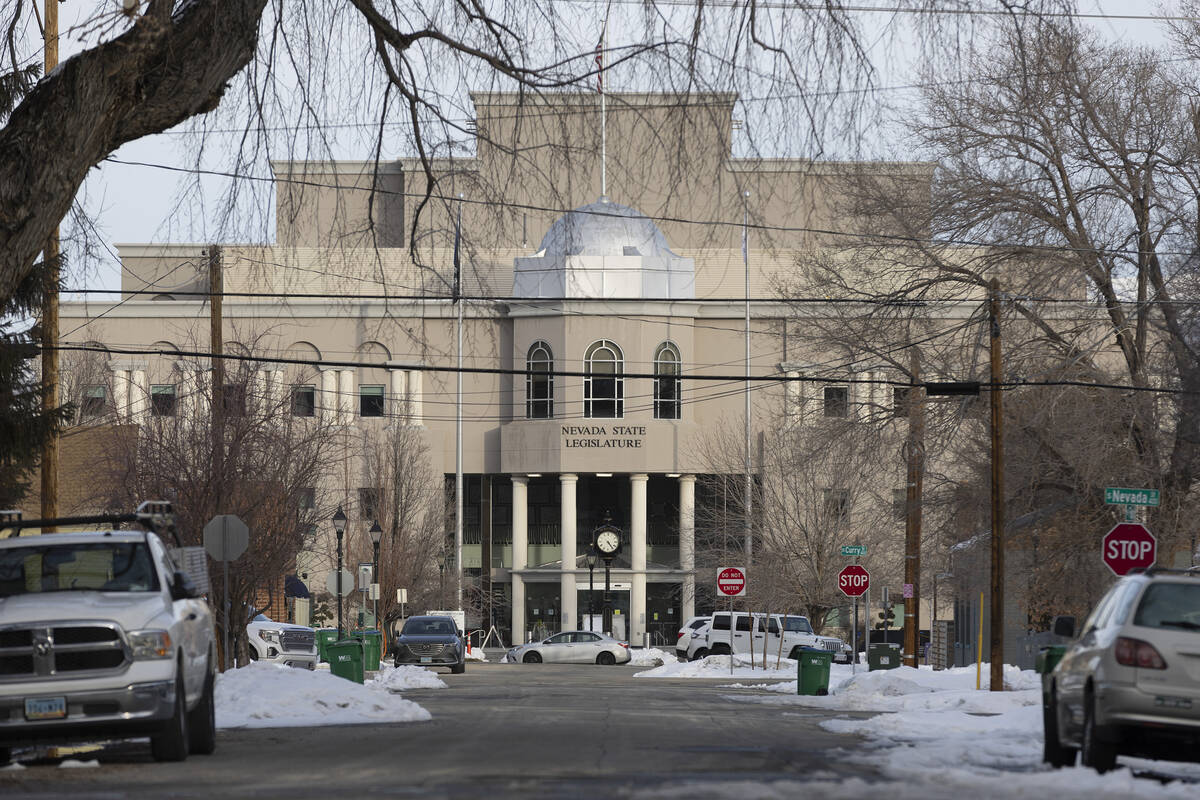6 Nevada laws taking effect in 2024: Increased cannabis possession limits, voting in jails
The begining of the new year marks when more than 80 new laws will be officially on the books in Nevada, including increased possession limits on cannabis products, penalties for those who sell tobacco products to minors and establishing polling places in jails.
Here are some of the laws that took effect effect on Jan. 1.
Cannabis possession limits double
Under Senate Bill 277, cannabis consumers can now purchase and possess more than double what they were able to before, from one ounce of cannabis up to two and half ounces.
Limits on cannabis concentrates will also double, increasing from an eighth of an ounce to a quarter ounce.
The law also allows licensed adult-use dispensaries to serve both medical and recreational customers and decreases the maximum fee that can be charged for the issuance or renewal of an establishment license.
Under the law, the Cannabis Compliance Board is required to develop a process through which those with certain felony convictions can petition the board for permission to work in the state’s cannabis industry.
Fines for tobacco sales to minors
Assembly Bill 53, a bill brought on behalf of the attorney general’s office, increases fines for retailers that sell tobacco to those under the age of 21.
Under the law, those licensed to sell tobacco products could face a fine of $2,500 for their first violation, $5,000 for a second offense and $7,500 for a third violation. Any subsequent violation occurring within a two-year period could result in a $10,000 fine.
The law dramatically increases penalties for the offense. Previously, offenders received a warning for their first and second offenses, a $500 fine for a third offense, and a $1,250 fine for a fourth violation.
Communication impairments indicated on IDs
Individuals who have a communication impairment, including people with autism, are deaf or suffer from a speech disorder, are now able to indicate it on their driver’s license or ID card.
The law is meant to make interactions between law enforcement and those with a communication barrier safer.
Adding the symbol to the card is optional and does not add an additional cost to the price of a standard driver’s license or ID card, according to the Department of Motor Vehicles.
Regulations for food delivery robots
Rules governing robots will be in the law books next week. Senate Bill 422 lays out requirements for food delivery robots, including a provision limiting their operation to Nevada System of Higher Education campuses and adjacent sidewalks or crosswalks.
The robots, which can be operated autonomously, semi-autonomously or remotely, must weigh less than 150 pounds when empty and have a maximum speed of 10 miles per hour. The law prohibits such devices from carrying hazardous materials or transporting a person.
The robots must carry liability insurance and be marked with a unique identifying number.
The operation of the devices is subject to time, place and manner regulations by local governments.
Voting in jails
Under Assembly Bill 286, city and county jail administrators are required to develop a procedure to allow inmates to vote by mail.
Those in jail are either awaiting trial or serving misdemeanor sentences, and therefore have not had their right to vote revoked.
Paid family leave for state employees
Executive department employees who have worked for the state for more than a year are entitled to eight weeks of paid family leave under Assembly Bill 376.
Employees can take time off to bond with a newborn child or newly adopted child, to recover or undergo treatment for serious illness or to care for a seriously ill family member.
Employees must first use their sick leave and then will be paid 50 percent of their normal pay while on family leave.
Contact Taylor R. Avery at TAvery@reviewjournal.com. Follow @travery98 on X.


















